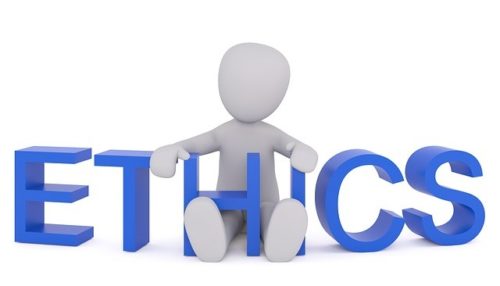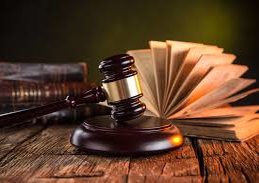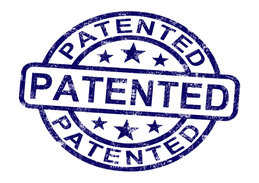- Confidentiality
- Conflict Of Interest
- Solicitation & Networking
- No-Contact Rule
- Referral Fees
- Communicating With Unrepresented Persons
- Attorney as third-party neutral
- Trust account issues
- Non-law practice activities
- Should You Take Equity?
-
Ethics in Business Law In this timely and compelling CLE program Attorney, Todd Kulkin, presents Ethics in Business. Mr. Kulkin starts the program with a discussion on Confidentiality, Conflict Of Interest, and Solicitation & Networking within the ABA model rules. The program continues with an overview of No-Contact Rule, Referral Fees, and Communicating With Unrepresented Persons. Additionally Mr. Kulkin will cover Attorney as third-party neutral, Trust account issues, and Non-law practice activities, The program concludes with an explanation if a lawyer should take equity. This program is a must for any attorney. Agenda:
-
Fair Debt Collection Practices Act
Fair Debt Collection Practices Act
Faculty: Boyd W. GentryThe Fair Debt Collection Practices Act (FDCPA) regulates the behavior of debt collectors who attempt to collect personal, family, or household debts on behalf of creditors. Compliance with the FDCPA is crucial to avoid legal repercussions as it provides strict guidelines on acceptable debt collection practices, prohibits abusive, false or misleading behavior, and imposes civil liability for violations.
Agenda
Overview of the FDCPA
-
Briefly introduce the FDCPA and its purpose
-
Provide a high-level overview of the topics to be covered in the session
Why comply with the FDCPA?
-
Discuss the consequences of non-compliance with the FDCPA
-
Explain the benefits of compliance for debt collectors
Who is a “debt collector” regulated by the FDCPA?
-
Define the term “debt collector” under the FDCPA
-
Explain who is regulated by the FDCPA and who is not
To what “debts” does the FDCPA apply?
-
Discuss the types of debts that are covered by the FDCPA
-
Explain the types of debts that are not covered by the FDCPA
Finding the Debtor and what can and must I say?
-
Discuss the rules and limitations on contacting debtors
-
Explain what information debt collectors must provide to debtors when contacting them
Communicating with Third Parties
-
Discuss the limitations on contacting third parties to obtain information about debtors
-
Explain the types of information that can and cannot be disclosed to third parties
Validation of debts [15 USC 1692g]
-
Discuss the requirements for debt validation under the FDCPA
-
Explain the timeline for debt validation and what information must be provided to debtors
Cease Communication Requests
-
Explain the rules for honoring requests to cease communication from debtors
-
Discuss the consequences of failing to honor a cease communication request
Prohibited debt collection practices
-
Discuss the types of debt collection practices that are prohibited under the FDCPA, including harassment or abuse, false or misleading representations, and unfair practices
-
Explain the consequences of engaging in prohibited debt collection practices
Legal actions and civil liability
-
Discuss the legal actions that debt collectors can take under the FDCPA to collect debts
-
Explain the civil liability that debt collectors can face for violating the FDCPA
-
-
Florida 28 Credit Bundle with Ethics & Technology
All Courses Approved by The Florida Bar
-
Fundamentals of Civil Litigation in Federal Court In this timely, and compelling, CLE course Attorney Thomas R. Schuck covers the Fundamentals of Civil Litigation in Federal Court. The program begins with an overview of how to commence an action and case management. Attorney Schuck continues by going over the process of summary judgment, arbitration, and trial. Mr. Schuck concludes the program with a discussion on judgments and appeals. This program is a must listen for anyone who wishes to learn more about the FRCP. Agenda Commencing An Action Case Management and Discovery Summary Judgement Arbitration and Mediation Trial Judgement and Post Judgement Issues Appeal
-
Fundamentals of Patent Prosecution - 2.0 Credit Hours In this timely, and compelling, CLE program Attorney Tyler Dunham covers Patent Prosecution or alternatively: The Basics of How to Obtain a Patent. Attorney Dunham will take participants, from beginning, to the end of how to obtain a patent. The program begins with information about the USPTO and types of patents. Mr. Dunham will continue the program with an explanation of the application process and the paperwork involved. Mr. Dunham will, also, cover the prosecution process in great detail. The program will conclude with a discussion on international patents and patent enforcement. This program is for anyone who wishes to learn more about patents and the patent process. Agenda General Info About the USPTO What Types of Tech can be Patented? 35 USC 101 What Types of Tech cannot be Patented? Who Can File Patent Applications? Types of Applications Other Miscellaneous Paperwork Usually Filed Patent Searching The Prosecution Process After Allowance International Patenting Patent Enforcement
-
Gambling Addiction for Lawyers Recent studies have shown that there has been a dramatic increase in impairment due to alcoholism, drug addiction and mental health disorders among members of the legal profession. The statistics are compelling and clearly indicate that 1 out of 3 attorneys will likely have a need for substance use or mental health services at some point in their careers. What about that “other” addiction – Gambling ? In 2018, the United States Supreme Court, in Murphy vs. NCAA, held that sports gambling was legal in all of the United States. By 2020, 22 states had added on-line gambling accessible by cell phone, computer and tablets. With it came the compulsive gambler. This program will explore not only Gambling Disorder, but also the connection between gambling and the more well -known forms of impairment and why lawyers are at higher risk to develop problems. This problem has only been exacerbated by the stress, anxiety and isolation caused by the Coronavirus crisis. The results are startling. Agenda:
- The early warning signs of impairment and how they relate to gambling disorders. Special attention will be given to the connection between the Coronavirus and it’s impact on social isolation, stress, anxiety, depression and gambling disorders.
- The free services that Lawyers Assistance Programs provide to lawyers, judges, their family members and law students.
- A close look at what barriers exist that prevent lawyers and judges from seeking the help they need will be provided.
- The role that education plays in breaking the stigma and fear associated with addiction and mental illness in the legal profession.
-
Help for the Helper: The Effects of Trauma and Compassion Fatigue on the Lawyer Who Cares Many of us were attracted to the legal profession because we care about people and want to help them. Attorneys hopefully recognize that, unlike many other professionals, their lives are already filled to the brim with anxiety and stress.The consequences of shrugging it off can be catastrophic. One of those consequences that we often hear about is burnout. And then there’s a special type of burnout called “secondary traumatic stress” or “compassion fatigue”. The ramifications of trauma and compassion fatigue aren’t discussed as frequently as those of stress and burnout thus, for many attorneys, they are topics in need of attention. Secondary or vicarious trauma can be the cumulative effect of listening to a client or witness relay graphic stories and experiences. Those who experience compassion fatigue tend to take on the pain, suffering and burdens of the people they are helping. It is an exhaustion that is felt physically, emotionally or mentally and can affect numerous areas of your life, often leaving you feeling numb. Recent studies have shown that there has been a dramatic increase in impairment due to alcoholism, addiction and mental health disorders among members of the legal profession. The statistics are compelling and clearly indicate that 1 out of 3 attorneys will likely have a need for substance use or mental health services at some point in their careers. Mr. Quinn will discuss: 1. The early warning signs of impairment, with special emphasis on stress, burnout, trauma and compassion fatigue. 2. The free services that Lawyers Assistance Programs provide to lawyers, judges, their family members and law students. 3. A close look at what barriers exist that prevent lawyers and judges from seeking the help they need will be provided. 4. The role that education plays in breaking the stigma and fear associated with addiction and mental illness in the legal profession. 5. How best to approach the impaired individual.
-
How Marijuana Use Can impair an Attorney’s Ability to Perform Legal Services with Competence: The Mental, Physical, Addictive, and Impairing Side Effects Many attorneys have not heard how much stronger marijuana is today. In this timely presentation, Heidi will provide basic information about the new high potency products. By understanding the side effects these new products present, a lawyer can recognize the warning signs and reduce his/her risk for addiction, mental illness and impairment. Heidi Anderson - Swan’s brother was a homeless drug addict with schizophrenia who went to jail eighteen times. In this CLE, she will begin by sharing their personal stories. She will continue with up-to-date information about the risks of marijuana use every lawyer should know. Agenda -Heidi & Kirk: Occasional User and Chronic User of 1970’s Pot -Marijuana and Psychosis/Schizophrenia, Anxiety, Depression, Bipolar Disorder, Suicide -How Weed Has Changed Since the 1970’s -High Potency Products: What Are They? What Are Their Side Effects? -How to Detect Warning Signs -Potential for Impaired Driving
-
How the IRS Reconstructs Income in Tax Fraud Cases
-
How to Cross Examine a Medical Witness In this timely, and compelling, program attorney, John Scalia, presents, “How to Cross Examine a Medical Witness”. Mr. Scalia will introduce the program with the cardinal rules a lawyer must follow on cross examination. The program will continue with a discussion of personal considerations. Mr. Scalia, then, masterfully provides real life examples and gives an overview of dealing with reports. The program concludes with an explanation of surveillance. This program is a must for any attorney. Agenda The Three Cardinal Rules
- Know the medicine
- Know the facts
- Know how the law affects the medicine and the facts
- witness hostile
- judge or jury hostile
- interfering with objectivity. (Ours)





